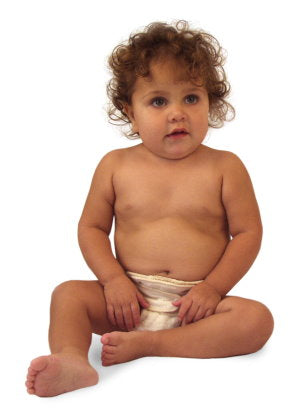How to Strip Your Cloth Diapers

Over time you may notice that your cloth diapers may have an unpleasant ammonia smell to them. This usually means that your cloth diapers are in need of a good stripping. The cause of those lingering smells is due to cloth diaper “build-up”. Stripping is necessary when build-up occurs due to the residue left behind in the fibers by detergents, oils or other substances. Stripping you cloth diapers is also necessary for maximum absorbency. Build-up can decrease the absorbency of your diapers causing leakage. Diapers with either hemp (due to it’s super absorbency attribute) or man-made materials tend to gather unpleasant odors more easily than diapers with like cotton or wool. There are many sources that recommend bleaching your diapers. Being that you are purchasing or have purchased our organic fabric line and are consciously avoiding the use of bleach in the production, we thought it best to offer our natural approach to ridding yourself of unwanted odors. Have no fear, removing build-up by stripping your cloth diapers is super simple. Here is the natural Stripping Method that we recommend.
Note: If your diapers are dirty, as well as stinky, wash your cloth diapers as you normally would before stripping. Otherwise stains may set in. Before stripping be sure to check the washing instructions for your diapers so you don’t accidentally damage or shrink them.
Wash, Rinse, Rinse, Rinse, and Repeat if Necessary
There is no need to dry your freshly detergent washed diapers before stripping. Simply place the cloth diapers back in the washing machine and run them through a hot wash with NO DETERGENT. Then rinse, rinse, rinse your cloth diapers in the hottest water your machine will allow. Continue running rinse cycles until there are no more soap bubbles. It could take four or more rinses to get rid of all the bubbles. Top loading machines are slightly easier to use when stripping because you can lift the lid to check for bubbles. However, front loading washers can also be used successfully, it may just take a few more cycles. Be careful to not confuse soap bubbles with agitation bubbles – agitation bubbles will disapate quickly if you stop the washer while soap bubbles will hang around a bit. Once you have rinsed all the detergent from you cloth diapers run them once more with one cup of white vinegar and either line dry or toss your stink-free cloth diapers in the dryer. White Vinegar
Add Vinegar
White vinegar naturally breaks down uric acid aka ammonium acid urate and soapy residue. How does this work, you ask? Vinegar is an acid. Ammonia is a base. Thus, through a neutralization reaction between the two, the acid vinegar will neutralize the base ammonia. The acid in white vinegar is also strong enough to dissolve the alkalies in soaps and detergents, yet is mild enough to not harm your fabrics.
Vinegar also prevents yellowing, acts as a fabric softener, a static cling reducer, as well as attacks mold and mildew.
Add 1 cup of vinegar to your final stripping rinse to remove the last of the detergent residue and to soften your cloth diapers. Don’t worry, your diapers won’t smell like vinegar after they’re dry.
DO NOT USE VINEGAR on a frequent basis as it can damage the elastic in your diapers!
Vinegar in Hard Water
If you have hard water the acid in the vinegar could be reacting with the minerals in the water and contributing to additional unwanted odors.
- Add a natural water softener to the wash cycle or boil enough water for the last rinse cycle.
- or cut down on use of vinegar. Try a teaspoon to begin with and add more as needed.
Do not mix Baking Soda and Vinegar
Don’t use baking soda while stripping with white vinegar. Ammonia is a base as far as pH is concerned and so is baking soda. Therefore the neutralization reaction with the acidic vinegar is compromised

